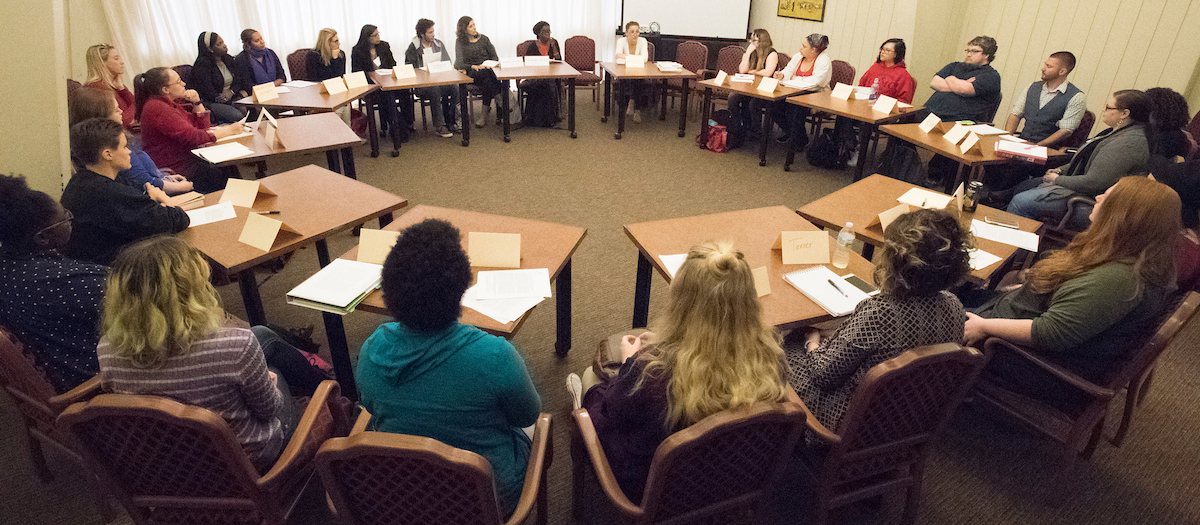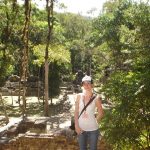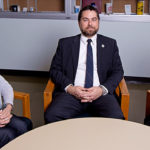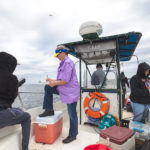International Group Visits Feminist Theory Class
Pensacola – Education and gender issues were among the topics discussed when diplomats from seven nations visited students in the Feminist Theory class at the University of West Florida.

The international group’s visit to the class, which is taught by Dr. Katherine Romack, an associate professor in the Department of English, is part of the Education and Activism For Young Women Project sponsored by the U.S. Department of State’s International Visitor Leadership Program. The event was hosted by the Gulf Coast Citizen Diplomacy Council.
“This was such a wonderful opportunity for the students. It isn’t often that a group of students, passionate about an issue like women’s education, is able to engage, face-to-face, with such a diverse panel of prominent international leaders,” Romack said.
The visit began with the students introducing themselves to the diplomats and describing their experiences in the course. The class had just finished a discussion of the constitutional issues at stake in the first-wave feminist and abolition movements of the 19th and early 20th century and had been asked to think about the status of women’s education today, Romack said.
The international visitors included Selena Jane Malijarri, who is a newly elected member of Parliament in the Northern Territory of Australia. She said the region she represents has eight cabinet ministers, five of whom are women.
“I’m pretty proud even though we are a very small state that we have women who are making some really important decisions at the top level,” Malijarri told the class.
Rachel Levi-Hertz, who is the head facilitator of Israel’s National Young Women’s Parliament, was asked about how the tension between Arab and Jewish populations affects the classes she teaches. She said when the female students are brought together they usually find they have a “common language.”
“It doesn’t matter where you come from, every girl and woman has the same issues, the same problems,” Levi-Hertz said.
Abdelmohsine El Hallouat, an associate tutor with the Bouarfa Association for Peace in Morocco, told the class about his work to spread awareness about the obstacles in teaching multilingual education in Morocco, which has both French and Arabic speaking students. He said a student trained in Arabic in one region, who decides to attend college, is at a disadvantage should he or she choose to enter a French-speaking institution.
Romack asked each diplomat how the educational system was set up in each of their countries, whether education is accessible to all children, and what some of the obstacles they face as education advocates are.
“I’m very concerned about this move we’re seeing in the United States right now to use this argument about failing schools to justify the privatization of education,” Romack told the diplomats.
Levi-Hertz talked about the need to educate not only young women about their rights at any early age, but to teach young boys how to respect and treat women.
“I loved it,” Sydney Stone, an undergraduate student in the Feminist Theory class said of the diplomats’ visit. “I thought it was great to hear all these different perspectives.”



